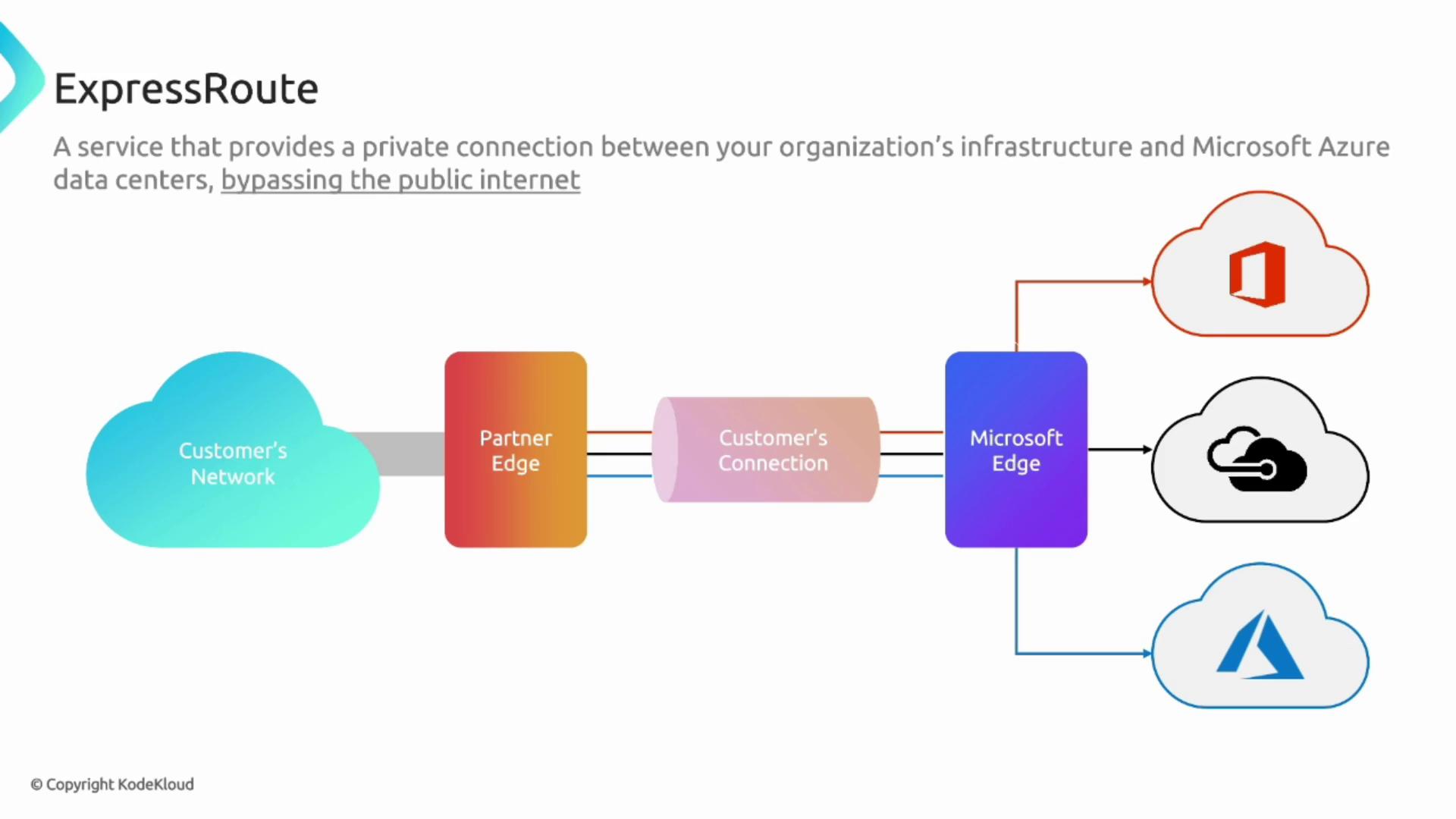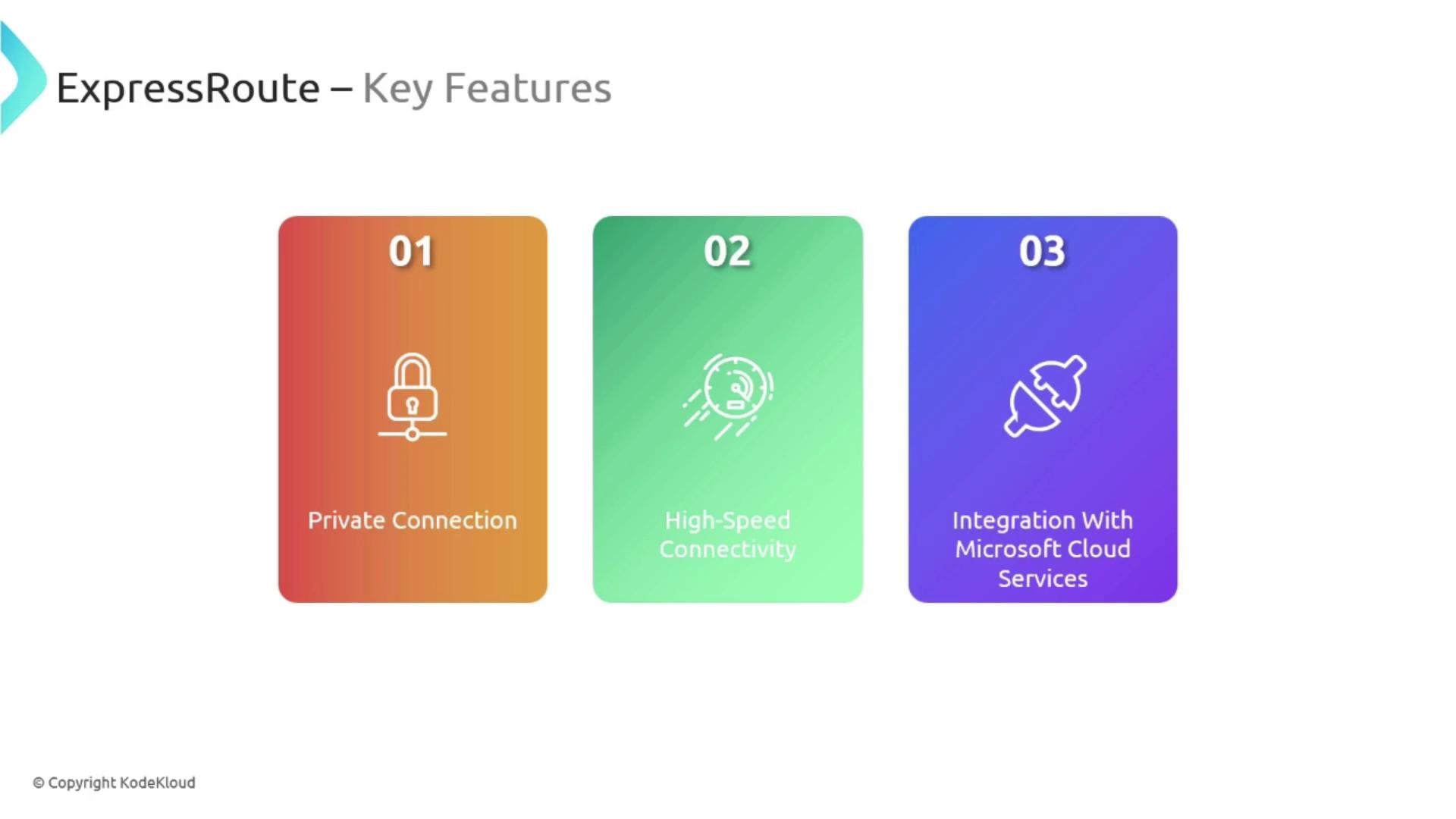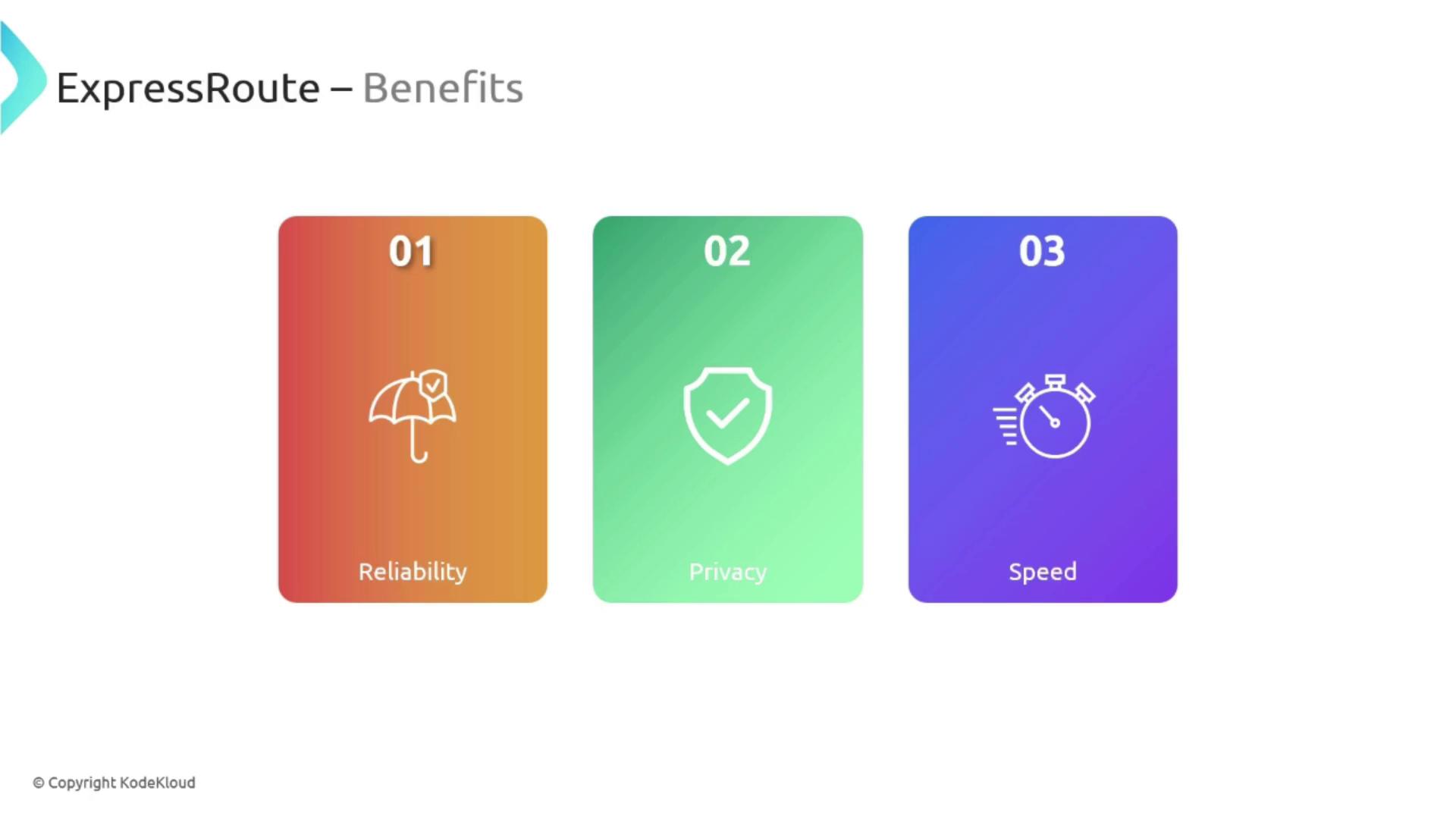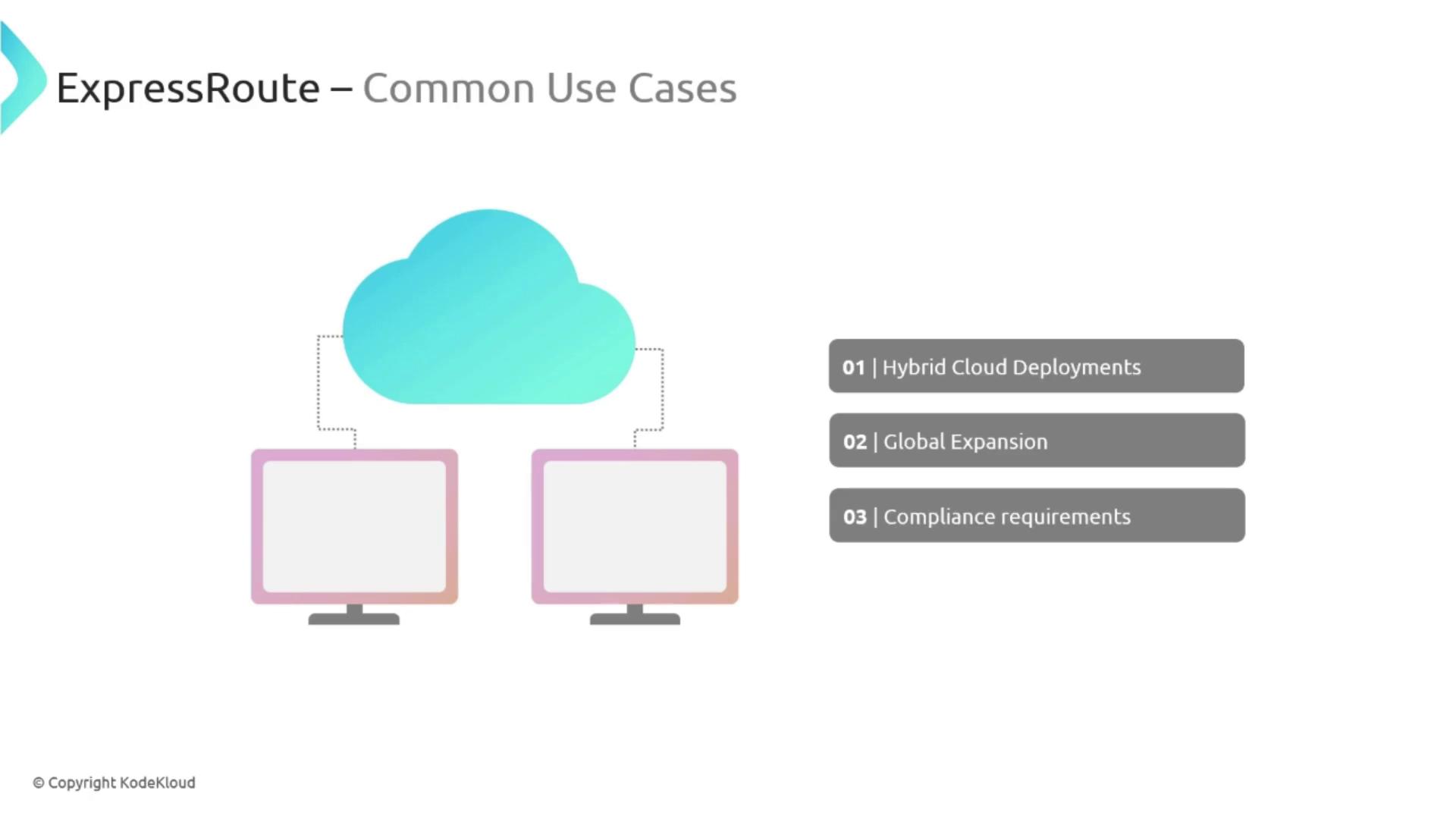AZ900: Microsoft Azure Fundamentals
Compute and Networking
ExpressRoute
ExpressRoute is a dedicated networking service that enhances your connectivity experience by bypassing the public internet entirely. Unlike Azure VPN Gateway, which secures your data over the public internet, ExpressRoute establishes a private, direct connection to Microsoft Azure data centers, ensuring a more secure and reliable connection.
Instead of routing traffic through the public internet, ExpressRoute uses a connectivity provider that leverages leased lines from telecom or ISP providers. This results in a secure and dedicated connection between your on-premises network and the cloud.

Features of ExpressRoute
Private Connection
ExpressRoute provides a dedicated network pathway directly to Azure. This private connection results in improved reliability, higher speeds, and enhanced security compared to conventional internet connections.
High-Speed Connectivity
With bandwidth options ranging from 50 Mbps up to 100 Gbps, ExpressRoute is designed to handle significant data transfers. This high-speed connectivity ensures your applications run smoothly without the typical limitations of standard internet connections.
Integration with Microsoft Cloud Services

ExpressRoute seamlessly integrates not only with Azure but also with other key Microsoft Cloud Services such as Microsoft 365 and Dynamics 365. This integration streamlines your overall cloud strategy and optimizes connectivity across services.
Note
ExpressRoute is ideal for organizations that require dedicated bandwidth, enhanced security, and high-speed connectivity for mission-critical applications.
Benefits of ExpressRoute
Reliability:
By using dedicated pathways, ExpressRoute avoids the volatile nature of the public internet, ensuring consistent and reliable network performance.Privacy:
Data transmitted over ExpressRoute is kept separate from the public internet, boosting security and ensuring data privacy.Speed:
Optimized for high-speed data transfers, ExpressRoute is perfect for enterprises needing to move large volumes of data quickly and efficiently.

Common Use Cases
Hybrid Cloud Deployments
Enterprises implementing hybrid cloud strategies benefit from ExpressRoute by establishing a secure and persistent connection between on-premises infrastructure and Azure.
Global Expansion
Organizations planning global expansion can leverage ExpressRoute to connect across multiple Azure data centers worldwide. This ensures seamless connectivity and consistent performance wherever you operate.
Compliance Requirements
For companies subject to strict data protection regulations, ExpressRoute offers a secure, private connection that keeps sensitive data off the public internet. This feature supports compliance with rigorous data sovereignty and regulatory requirements.

This concludes our discussion on ExpressRoute. For more detailed information on how ExpressRoute can benefit your organization, visit the Microsoft Azure documentation.
Watch Video
Watch video content